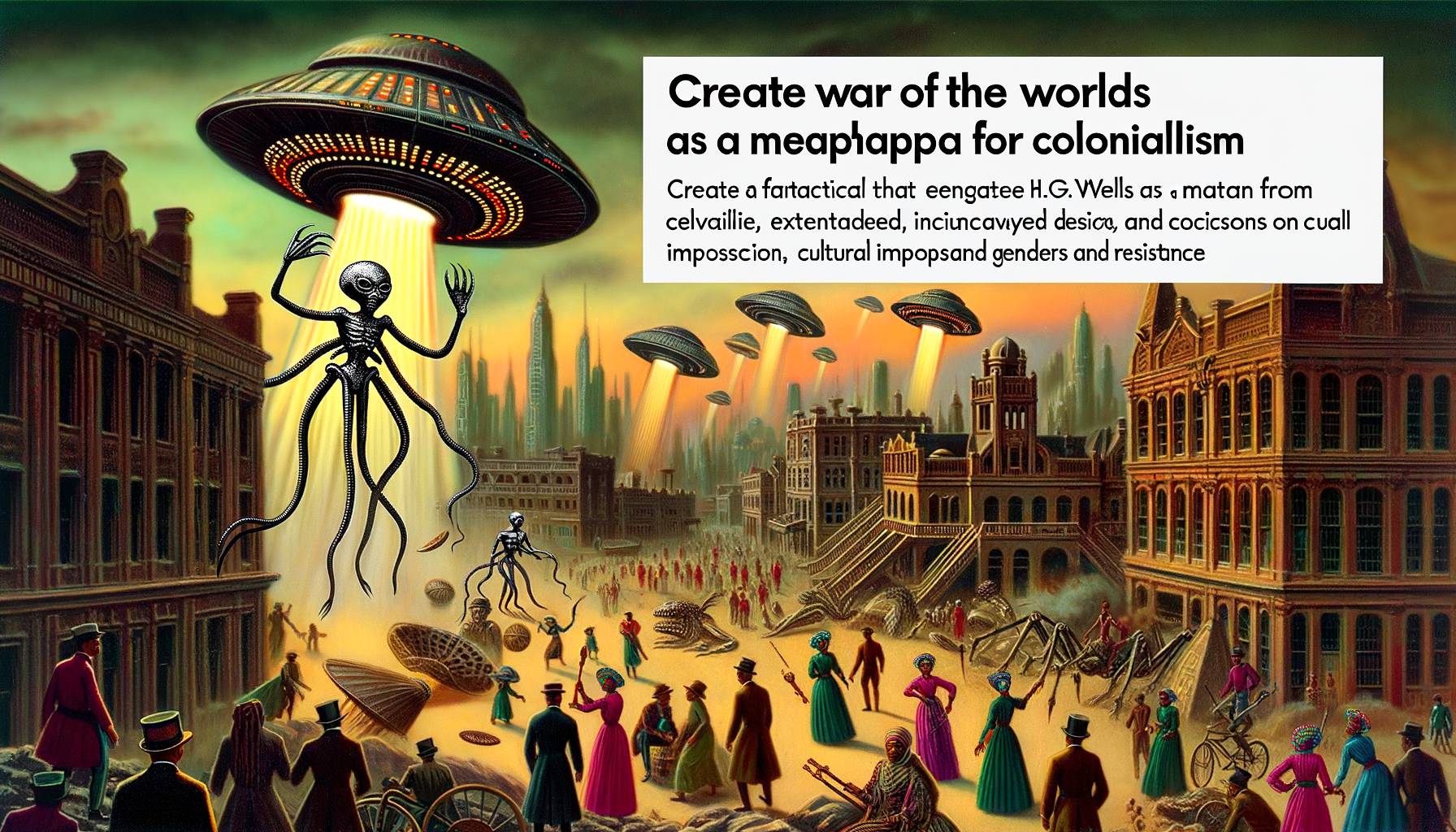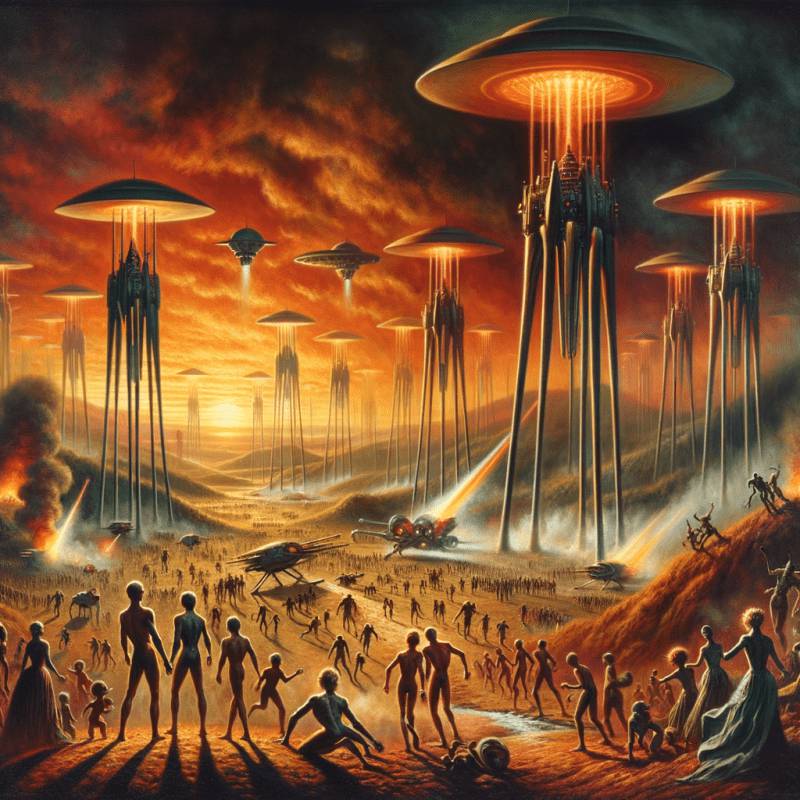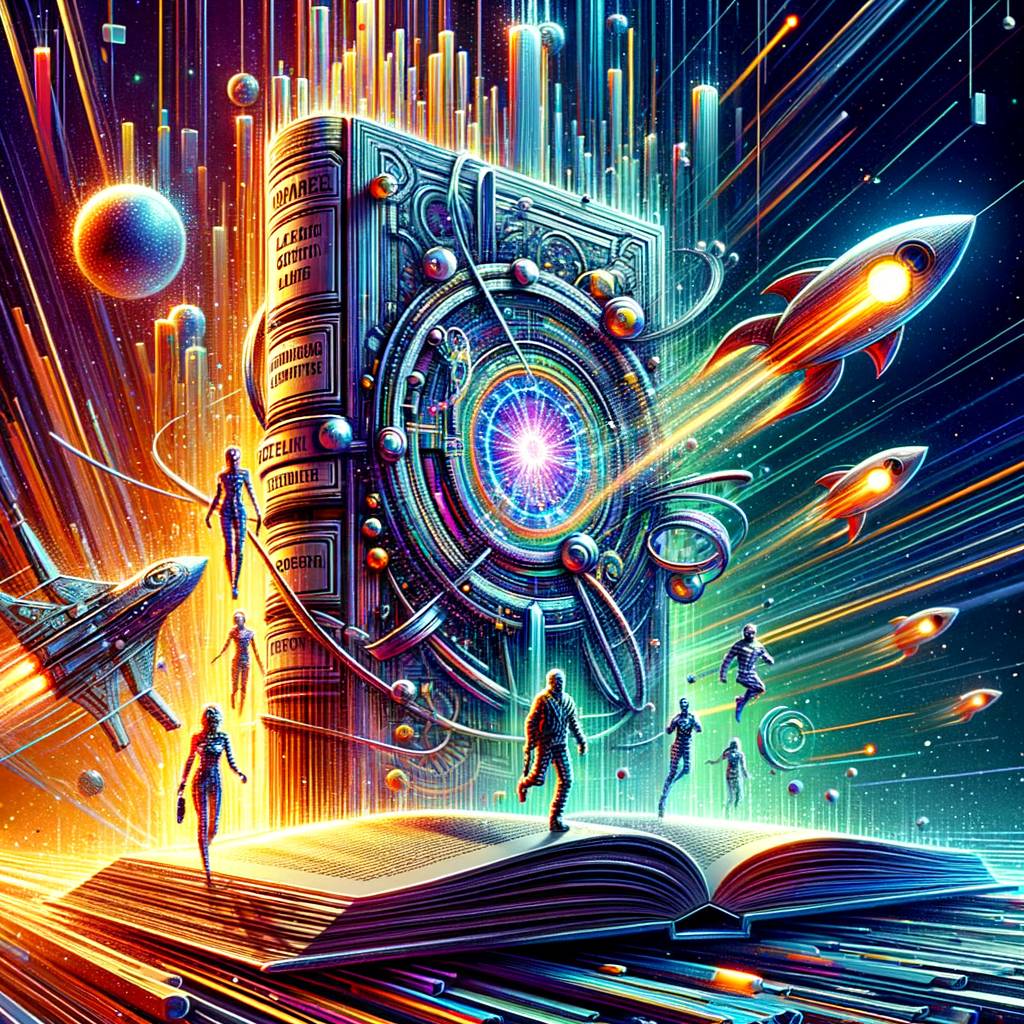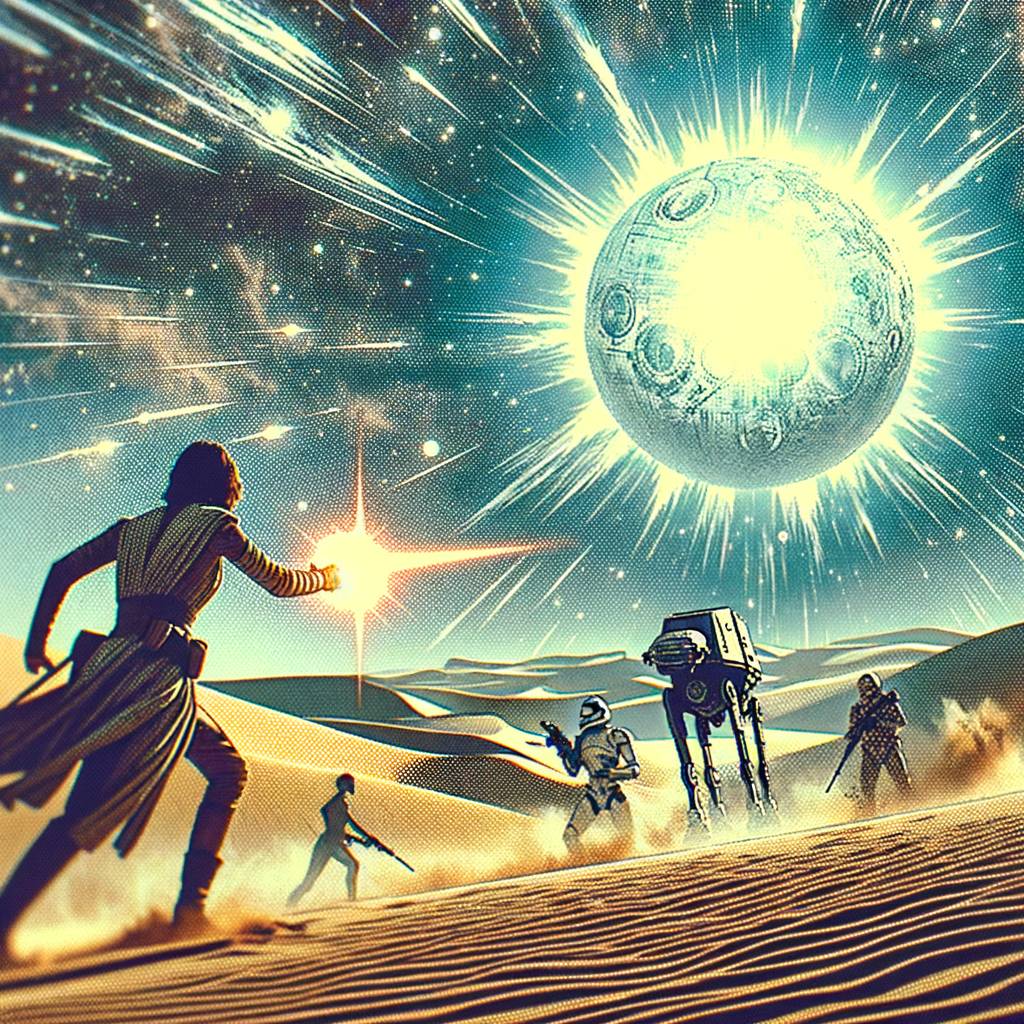Invaders from Mars: H.G. Wells’ The War of the Worlds as a Metaphor for Colonialism

When H.G. Wells penned The War of the Worlds in 1898, he created a chilling tale of Martian invasion that has captivated readers for over a century. However, beneath the surface of this science fiction classic lies a potent metaphor for colonialism, reflecting the anxieties and realities of the British Empire during Wells’ time.
The War of the Worlds: A Brief Overview
The War of the Worlds tells the story of a Martian invasion of Earth, focusing on the experiences of an unnamed protagonist and his brother as they navigate the chaos and destruction brought by the extraterrestrial invaders. The Martians, superior in technology and indifferent to the plight of humans, wreak havoc across England, reflecting the brutal and dehumanizing aspects of colonial conquest.
Colonialism Reflected in Martian Invasion
Wells’ depiction of the Martian invasion mirrors the tactics and consequences of colonialism. The Martians, armed with advanced weaponry, easily overpower the human population, much like colonial powers subjugated indigenous populations with superior military technology. The Martians’ use of the Heat-Ray, a weapon that instantly incinerates anything in its path, can be seen as a metaphor for the destructive power of colonial forces.
Moreover, the Martians view humans as lesser beings, a sentiment echoed in the attitudes of many colonial powers towards indigenous peoples. As Wells writes, “Never before in the history of the world had such a mass of human beings moved and suffered together. The legendary hosts of Goths and Huns, the hugest armies Asia has ever seen, would have been but a drop in that current.”
1
Wells’ Critique of British Imperialism
Wells, a known critic of British imperialism, uses The War of the Worlds to highlight the hypocrisy and brutality of colonial conquest. The British, who were the colonizers in reality, are portrayed as the colonized in the novel, experiencing the fear, dislocation, and subjugation that indigenous populations faced.
Wells’ critique is particularly evident in the following passage: “And before we judge of them too harshly we must remember what ruthless and utter destruction our own species has wrought, not only upon animals, such as the vanished bison and the dodo, but upon its inferior races. The Tasmanians, in spite of their human likeness, were entirely swept out of existence in a war of extermination waged by European immigrants, in the space of fifty years.”
2
Conclusion: The Enduring Relevance of Wells’ Metaphor
More than a century after its publication, The War of the Worlds remains a powerful critique of colonialism. Its depiction of Martian invasion serves as a stark metaphor for the destructive and dehumanizing effects of colonial conquest. In an era where discussions about colonialism and its lasting impacts are more relevant than ever, Wells’ novel offers valuable insights into the realities of colonial power dynamics.
Through his chilling tale of Martian invasion, Wells forces us to confront the harsh realities of colonialism, reminding us of the importance of empathy and respect for all life forms. As we navigate the complexities of our increasingly interconnected world, The War of the Worlds serves as a potent reminder of the dangers of unchecked power and the dehumanizing effects of viewing others as ‘inferior’.
1 Wells, H.G. (1898). The War of the Worlds. William Heinemann.
2 Ibid.



